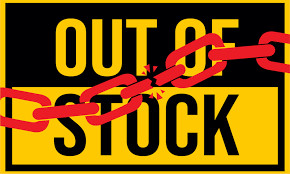
Microchip and cement shortages are still a problem for manufacturers of everything from pickup vehicles to houses, which could delay and increase the expense of federal efforts to arm Ukraine against Russian aggression and restore the country's deteriorating infrastructure and industries.
When it comes to retail-focused industries, the supply chain problems that drove up costs and caused shortages of everything from toilet paper to passenger cars are improving. However, important growth industries like autos, machinery, defense, and non-residential construction continue to struggle despite this, according to experts.
"For sectors where demand is still strong, we are still seeing issues of materials shortages, and these problems will take additional time to resolve," said Jason Miller, associate professor of logistics at Michigan State University's business school.
"One of the big issues as we're trying to ramp up the military industrial base is having enough electronic components," Miller said.
Before beginning fresh manufacture for Ukraine, companies that produce combat weapons like shoulder-fired Javelin and Stinger missiles are awaiting funds from the United States. When the defense sector receives approval, a fresh round of supply chain snarls that hinder production and raise costs may result from the industry's rush to locate semiconductors and other difficult-to-find electronic components.
"Any general shortage in semiconductors will affect defense," said Brad Martin, director of Rand Corp's National Security Supply Chain Institute.
In certain places, the issue is less severe. Once children returned to school and parents went back to work, the supply of semiconductors for personal computers improved, which severely hurt sales of new devices.
On the other hand, supplies of the microchips that serve as the electronic brains in such machinery are scarce due to the ongoing demand for automobiles and farm machines.
Caterpillar CEO Jim Umpleby stated at a conference on March 14 in Las Vegas that the manufacturer of farm and construction equipment Caterpillar Inc. is still vying with automakers for access to scarce resources.
"It's gotten a bit better, but it's still not what it was pre-pandemic," said Umpleby.
After closing for more than a week owing to issues with semiconductor availability that the firm is working to fix, General Motors last week reopened its Silao, Mexico, factory that produces Chevrolet Silverados and GMC Sierras.
"As we've moved through the past year or so, we have seen gradual improvement in our supply chain, including semiconductors ... Short-term disruptions will continue to happen," GM spokesman Dan Flores told Reuters in an email.
The construction of bridges, highways, and factories, which depend on concrete, are all threatened by a global shortage of cement, which also poses a threat to American semiconductor and green energy factory projects and federally funded infrastructure.
According to CEO Ward Nye during a Feb. 15 earnings call, cement company Martin Marietta Materials reported "strong demand" in Texas, where it is already seeing "sold-out situations."
According to Miller of Michigan State University, ready-mix concrete and concrete goods like blocks and highway barriers are in great demand. "It's certainly one of the manufacturing industry's stronger segments right now. No symptoms of cooling have emerged."
(Source:www.usnews.com)
When it comes to retail-focused industries, the supply chain problems that drove up costs and caused shortages of everything from toilet paper to passenger cars are improving. However, important growth industries like autos, machinery, defense, and non-residential construction continue to struggle despite this, according to experts.
"For sectors where demand is still strong, we are still seeing issues of materials shortages, and these problems will take additional time to resolve," said Jason Miller, associate professor of logistics at Michigan State University's business school.
"One of the big issues as we're trying to ramp up the military industrial base is having enough electronic components," Miller said.
Before beginning fresh manufacture for Ukraine, companies that produce combat weapons like shoulder-fired Javelin and Stinger missiles are awaiting funds from the United States. When the defense sector receives approval, a fresh round of supply chain snarls that hinder production and raise costs may result from the industry's rush to locate semiconductors and other difficult-to-find electronic components.
"Any general shortage in semiconductors will affect defense," said Brad Martin, director of Rand Corp's National Security Supply Chain Institute.
In certain places, the issue is less severe. Once children returned to school and parents went back to work, the supply of semiconductors for personal computers improved, which severely hurt sales of new devices.
On the other hand, supplies of the microchips that serve as the electronic brains in such machinery are scarce due to the ongoing demand for automobiles and farm machines.
Caterpillar CEO Jim Umpleby stated at a conference on March 14 in Las Vegas that the manufacturer of farm and construction equipment Caterpillar Inc. is still vying with automakers for access to scarce resources.
"It's gotten a bit better, but it's still not what it was pre-pandemic," said Umpleby.
After closing for more than a week owing to issues with semiconductor availability that the firm is working to fix, General Motors last week reopened its Silao, Mexico, factory that produces Chevrolet Silverados and GMC Sierras.
"As we've moved through the past year or so, we have seen gradual improvement in our supply chain, including semiconductors ... Short-term disruptions will continue to happen," GM spokesman Dan Flores told Reuters in an email.
The construction of bridges, highways, and factories, which depend on concrete, are all threatened by a global shortage of cement, which also poses a threat to American semiconductor and green energy factory projects and federally funded infrastructure.
According to CEO Ward Nye during a Feb. 15 earnings call, cement company Martin Marietta Materials reported "strong demand" in Texas, where it is already seeing "sold-out situations."
According to Miller of Michigan State University, ready-mix concrete and concrete goods like blocks and highway barriers are in great demand. "It's certainly one of the manufacturing industry's stronger segments right now. No symptoms of cooling have emerged."
(Source:www.usnews.com)





